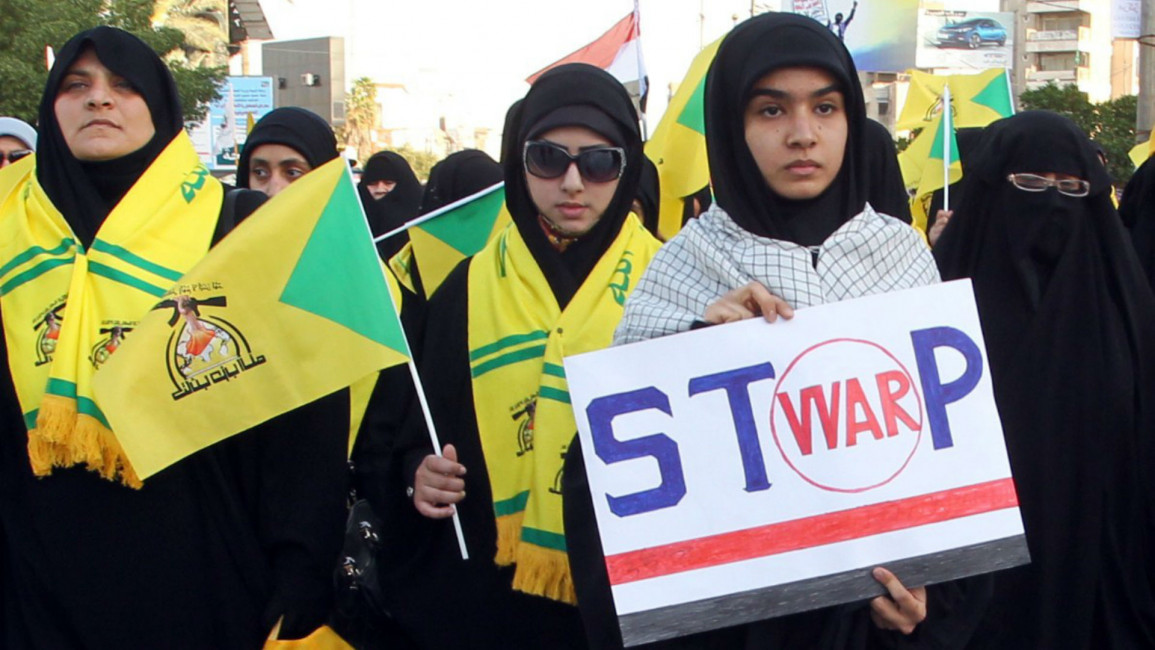
The propaganda machine behind the Houthis
Not many outside Yemen could say they had heard of the Houthi movement before the outbreak of the Saudi-led war in March.
Yemenis, however, have been familiar with the movement for at least a decade. Since the very first war between the state and the group, the Houthis were primarily seen as an armed movement fighting for power.
The Houthis changed tack during the uprising of 2011 against the regime of Ali Abdullah Saleh, and set themselves up as peaceful movement, not the fighters they were before.
Since then, the Houthis have been working a propaganda machine to clean up their violent history and smooth their way to a powerful position in Yemen's politics.
But that is not to say that the Houthis have abandoned their violent origins. Far from it, as events have shown over the last few months they have been quick to capitalise on the weakness of post-Saleh governments.
Their capacity for opportunism was on display when the Houthis allied with forces loyal to their historic foe, Saleh.
Now the rebel group calls for the end of the Saudi military campaign, but shows no sign of addressing its part in creating the crisis in Yemen.
The Houthis' paradoxical rhetoric, of being a peaceful protest movement while waging war on the state, can only be seen as a deliberate intention to mislead the public on the reasons and results surrounding political events in which they are involved.
The destruction seen in Aden and Taiz, caused by the Houthi-Saleh militia, is a clear indication that the Houthi movement can talk peace, but deals in armed confrontation.
How did people not see this violence coming? How were they mislead?
It is not clear whether the Houthis' strategy of misleading the public about the intentions of the militia was a collective decision made by their leader, Abdulmalik al-Houthi, and his supporters.
Or was it a product of the shared values and interests of many groups who wished to capitalise on the 2011 uprising and concentrate power in the hands of tribes in the northwestern highlands of the country led by Zaydi Hashemite dynasties?
| Their capacity for opportunism was on display when the Houthis allied with forces loyal to their historic foe, Saleh. |
Manipulating the population
A leaked paper, titled the Intellectual and Cultural Document, signed by Abdulmalik al-Houthi in 2012 explicitly states that a Zaydi Hashemite is the fittest to rule.
But many activists have worked hard to demonise political opponents of the Houthis after the 2011 uprising, and to convince the public that what happened after the Houthi takeover of Sanaa was anything but a coup.
The Houthis deploy this strategy in two ways; one being the outspoken pro-Houthi opinion leaders, who are active on the internet. They usually write in Arabic, and use very informal language to reach as many Yemenis as they could.
The second one is the group of English speakers, many of who were educated in the West. They do not publicly identify as pro-Houthi, but their rhetoric indicates that they are, if not plainly supporters of the Houthi militia, then they are willing to turn a blind eye to their controversial activities.
This group's work shows that they are mainly concerned about presenting an immaculate image of the Houthi movement toward the international community as a potential alternative to Saleh.
These groups' loyalty to the militia can be reasoned with the primitiveness of the structure of Yemeni society, which is manifest in there being no universal identity of what it means to be Yemeni.
At times of crisis, this leads Yemenis - even the most educated - to form allegiances within narrow groups of people who share the same social class, sectarian background or live in the same region.
Activists talk about the portrayal of the Houthi militia in international media as a group with grievances, but their grievances do not justify any of their crimes.
Houthi propagandists have also shifted their efforts to opposing the Saudi-led campaign under the motto of their most prominent spokesman, Ali al-Bukhaiti. He said on the first night of the air raids on Yemen that "we are all Houthis" - forgetting the simple fact that all Yemenis are affected by the violence, and not only the Houthis.
This attempt to present all Yemenis as Houthis or their supporters, is an example of how the group's propaganda works on misleading the public by portraying a militia as the victim, while its fighters continue invading Yemeni cities and killing civilians.
Opinions expressed in this article remain those of the author and do not necessarily reflect those of al-Araby al-Jadeed, its editorial board or staff.



